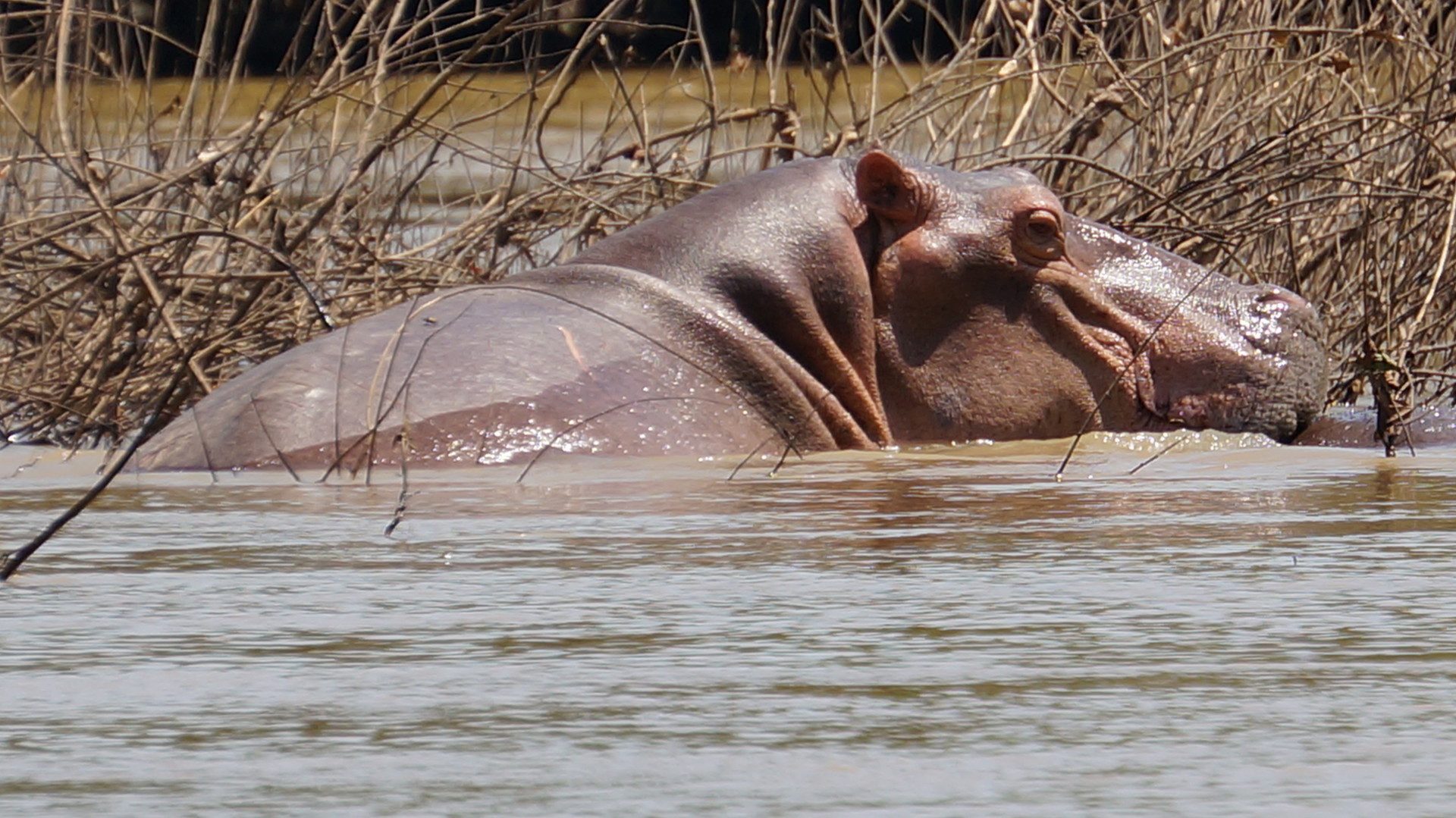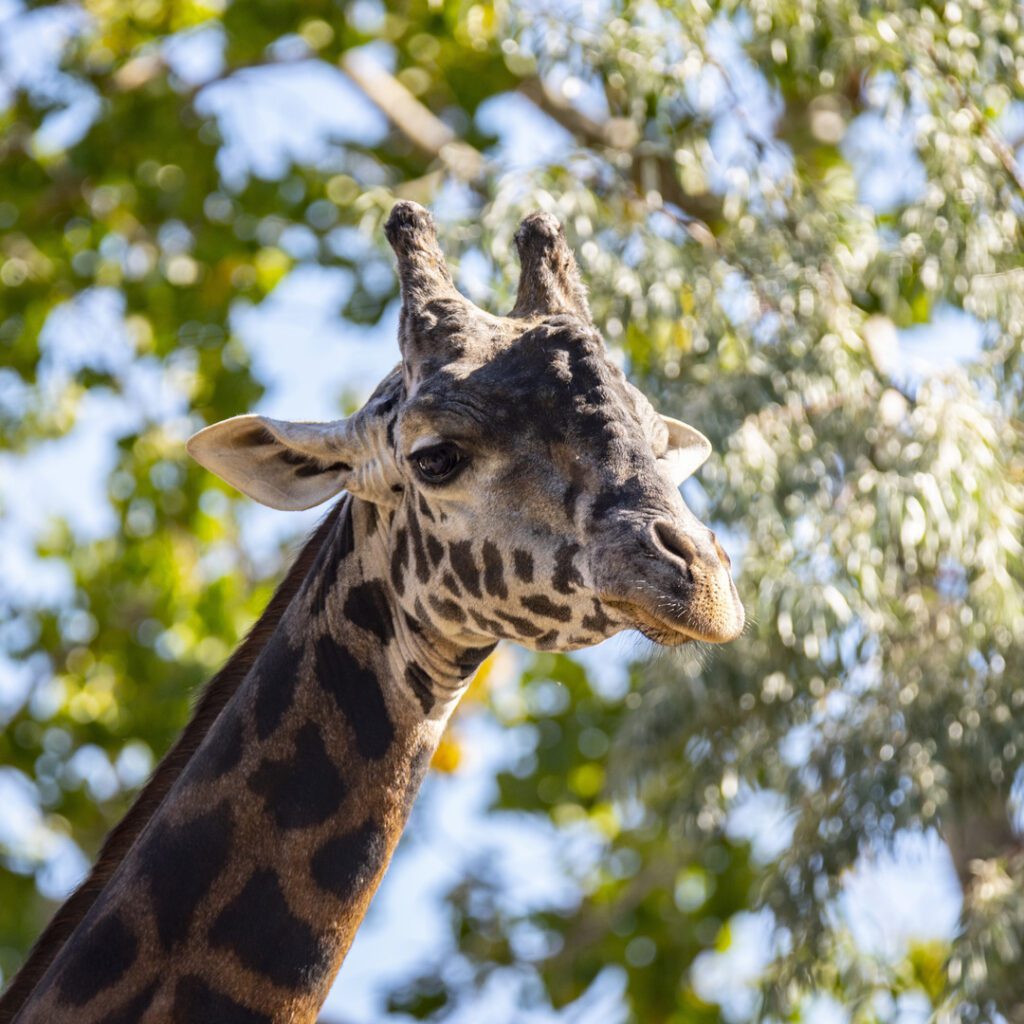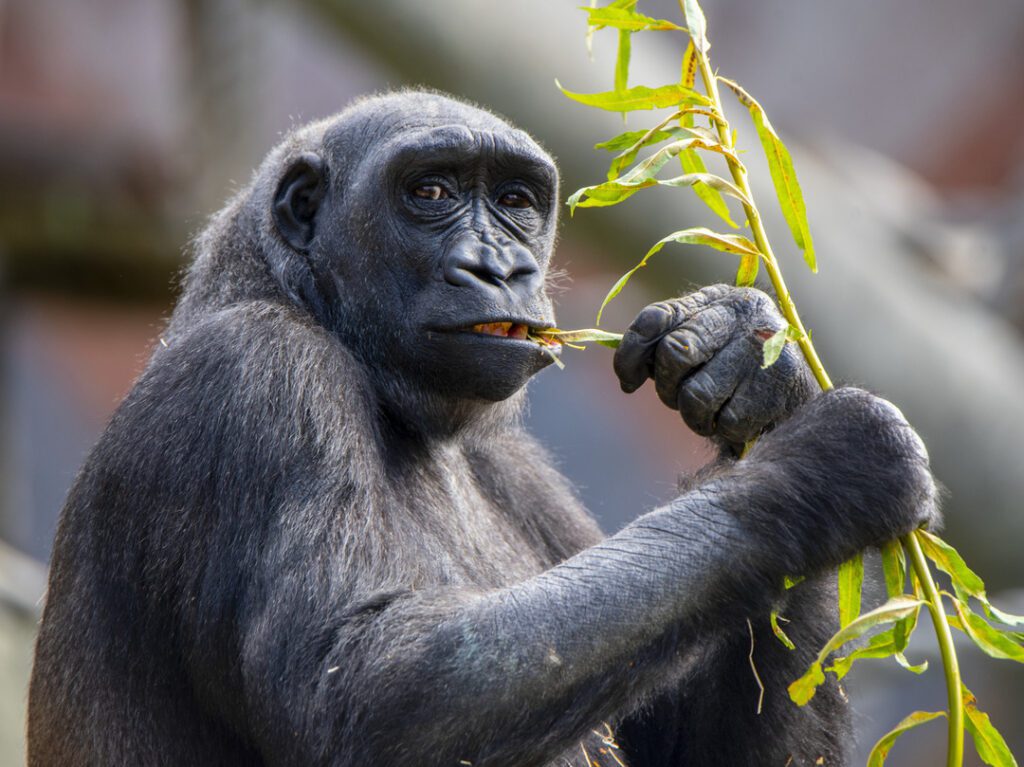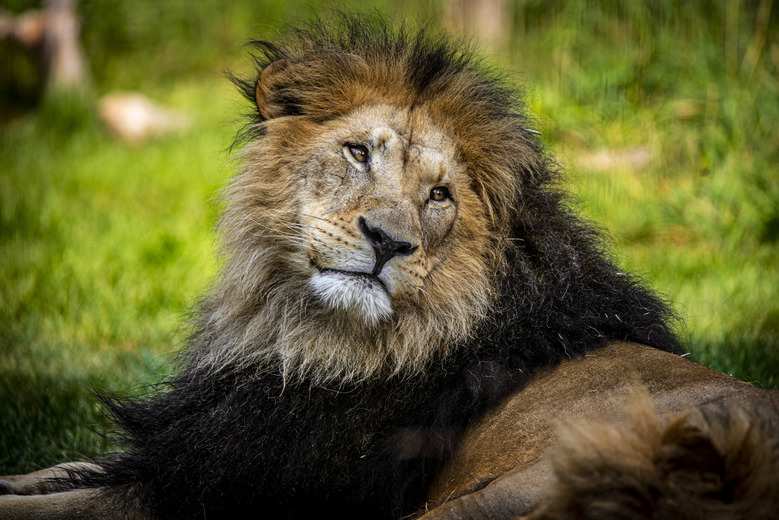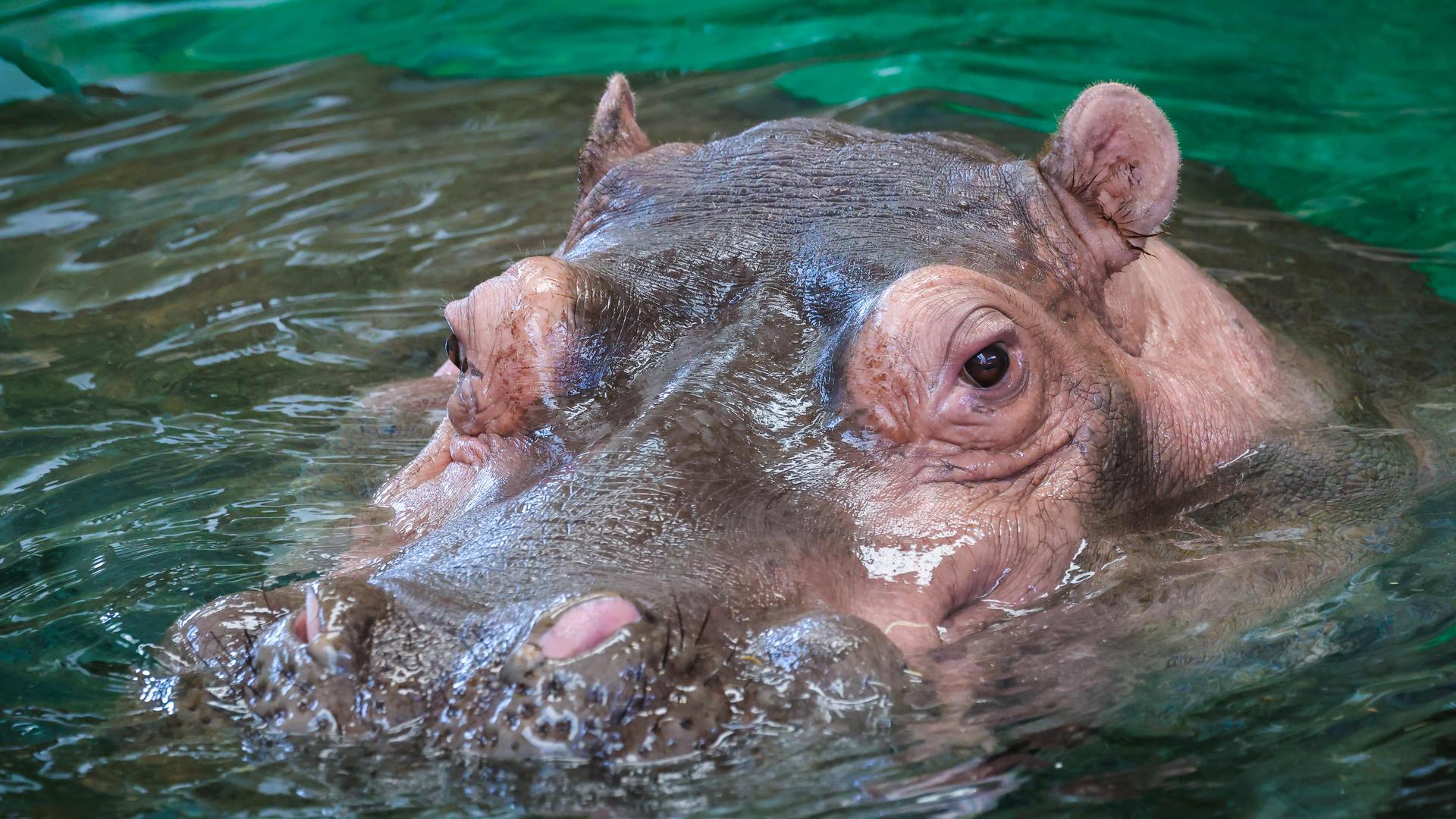
Hippopotamuses
Water lovers with powerful bodies
Barrel-shaped and muscular, hippos spend most of their time in water to protect their delicate skin from drying and burning in the hot sun. While they are too dense to float, hippos use their short legs to walk and run along the bottom of riverbeds. These herbivores are known for their huge mouths, with 50-centimetre-long canines that are used for fighting and a bite that is nearly three times stronger than that of a lion.
- IUCN Red List Status: Vulnerable (at high risk of extinction in the wild)
- Type: Mammal
- Habitat: Wetlands, rivers, lakes, and swamps of sub-Saharan Africa
- Diet: Herbivore – grasses, plants, and fruit
- Size: Up to 5 metres long and 1.5 metres tall
- Weight: Up to 4.5 tons
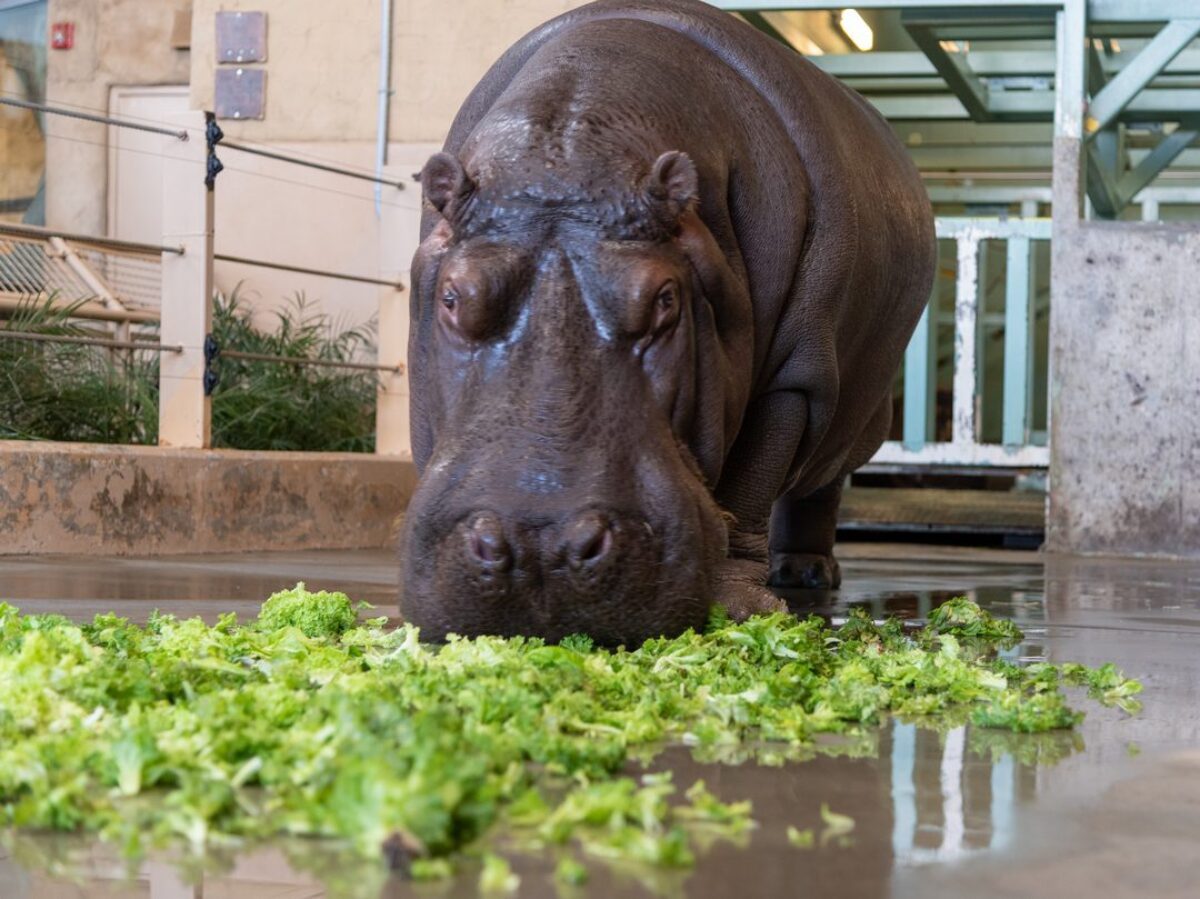
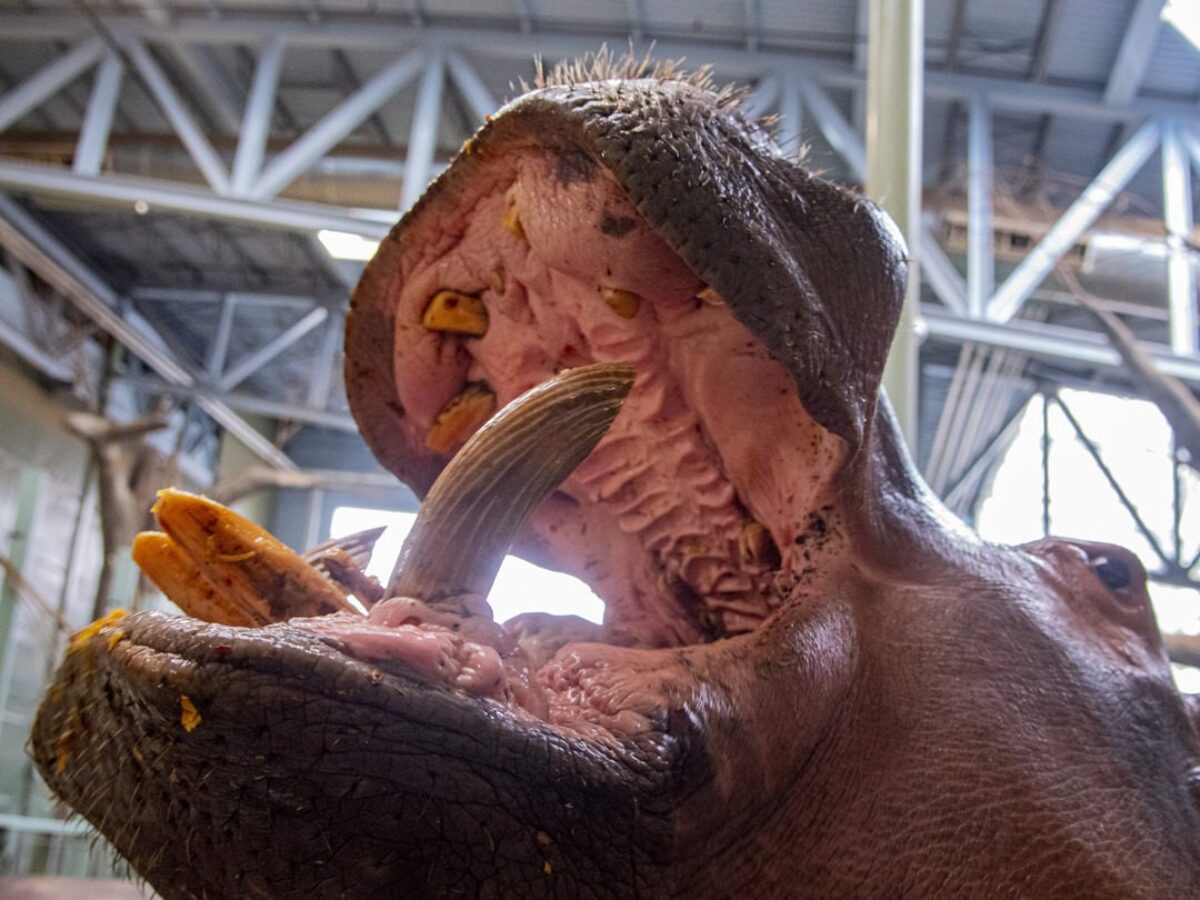
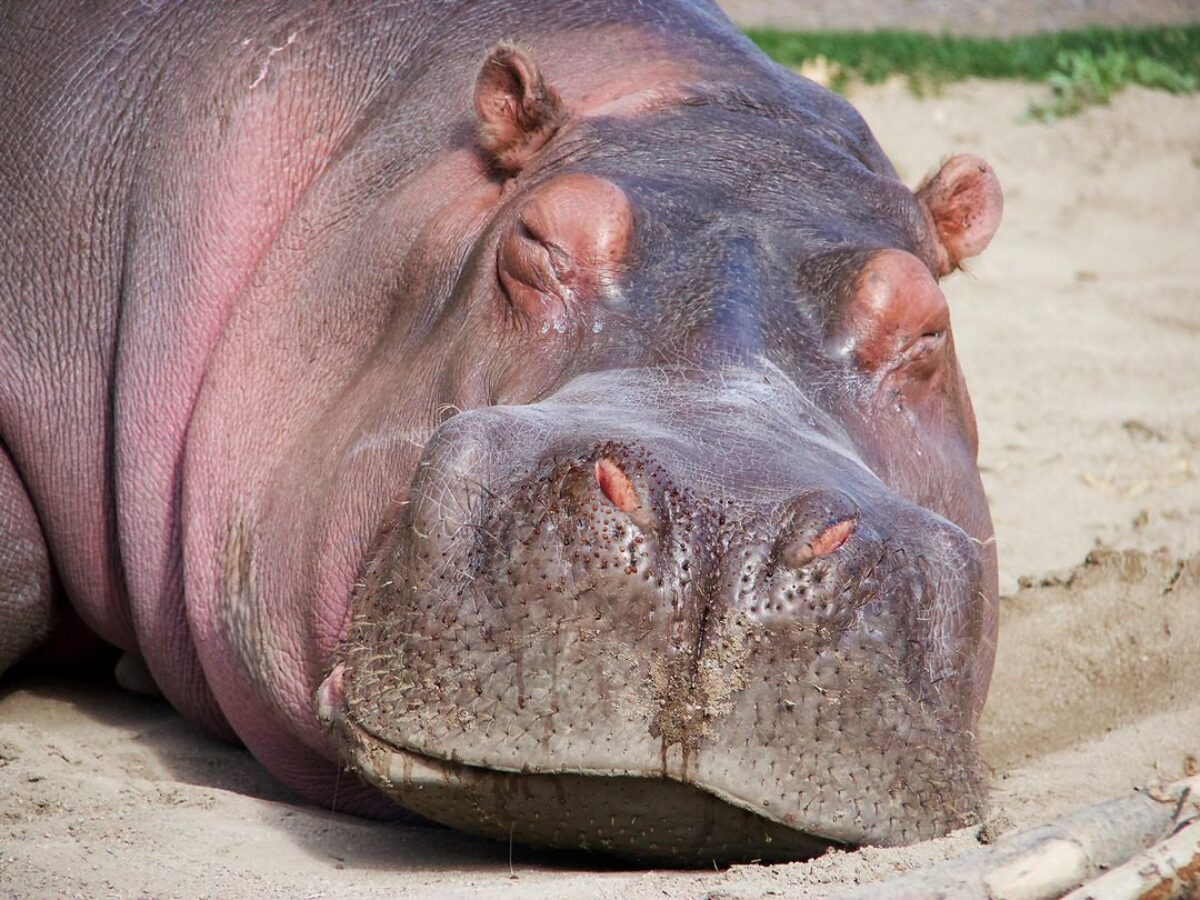
Facts about our animals
Fun Facts about Hippos
Hippos can open their jaws 180 degrees.
They can eat over 39 kilograms of food each night.
Hippos cannot sweat, but secrete a red, viscous liquid to protect their skin.
A hippo can hold its breath for up to five minutes.
Hippos are most active at night when they go to forage for food.
They run at an average speed of 35 kilometres an hour.
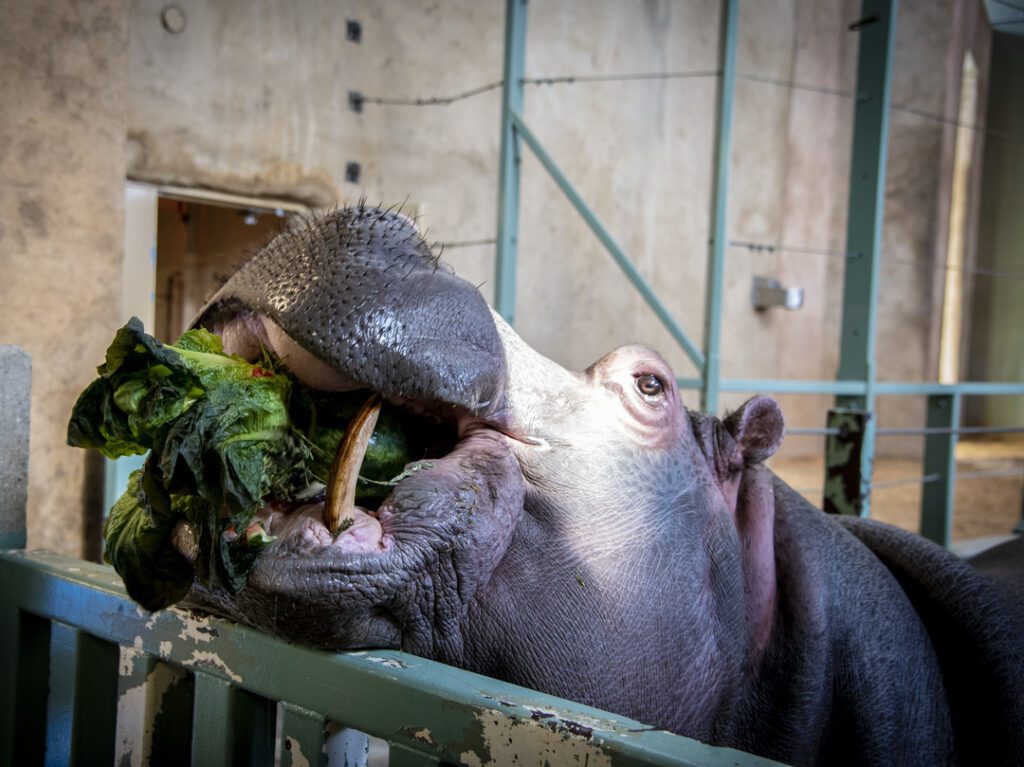
Donate
How you can help
Your donation makes a world of difference. With support for animal care, conservation programs, and education, you’re making the world wilder.
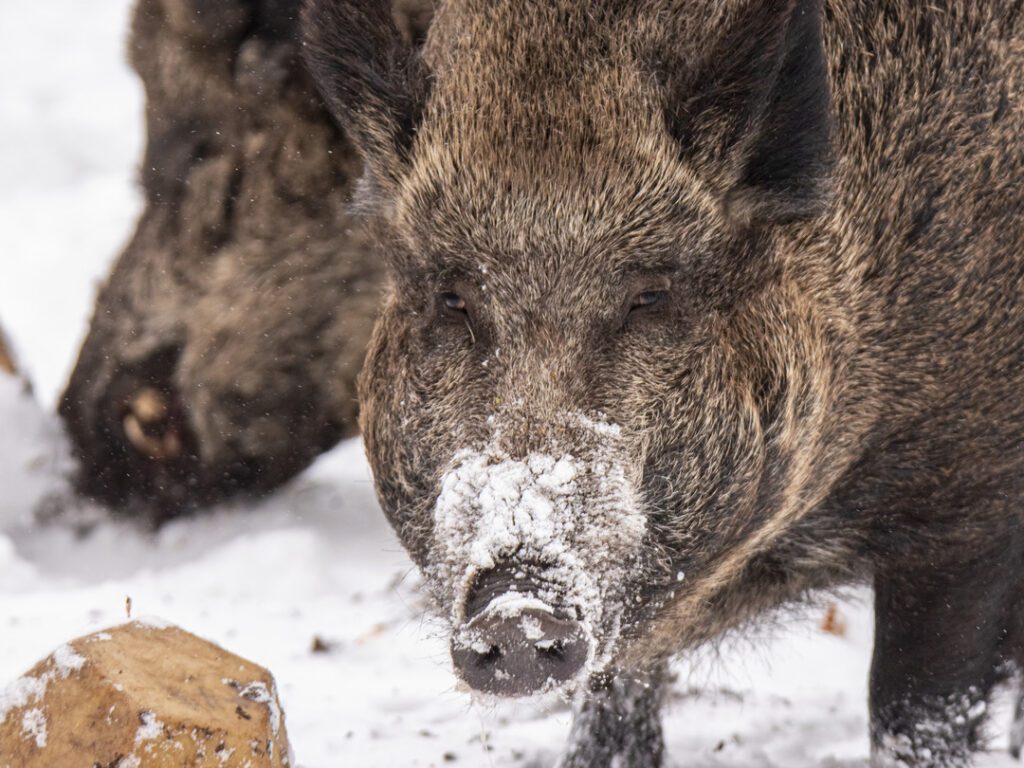
Plan your visit
Get close to wildlife
It’s time to make some memories. Here’s everything you need to know to plan an unforgettable day at the zoo.

